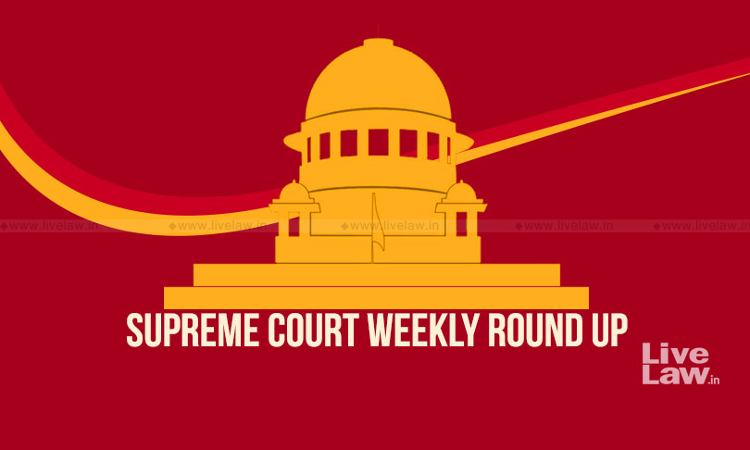- Home
- /
- Top Stories
- /
- Supreme Court Weekly Round Up
Supreme Court Weekly Round Up
LIVELAW NEWS NETWORK
12 Aug 2019 1:56 PM IST
Landlord Can't Be Precluded From Filing Eviction Petition On The Ground Of Bonafide Need Regarding Non-Residential Premise [Vinod Kumar vs. Ashok Kumar Gandhi] The Supreme Court held that the judgment of Satyawati Sharma Vs. Union of India which held that Section 14(1)(e) of the Delhi Rent Control Act is unconstitutional to the extent it discriminates between the premises let...
Next Story



